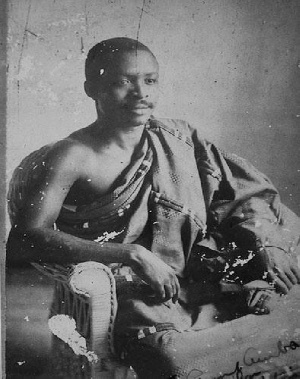Court of Appeal dismisses Ato Forson’s request to strike out ‘defective’ charge sheet

The request of the Minority Leader was premised on Justice Afia Serwah Asare-Botwe’s dismissal of his motion at the High Court on April 5, 2022.
Following a hearing of the motion on April 5, 2023, the High Court dismissed the motion as being without merit.
Justice Afia Serwah Asare-Botwe held that the ordinary meaning of the words contained in the particulars of the charges is well-known and not technical.
The former Deputy Minister for Finance and his co-accused have been arraigned and charged with the offenses of willfully causing financial loss to the Republic contrary to section 179A (3)(a) of the Criminal Offences Act, 1960, Act 29 and intentionally misapplying public property contrary to section 1(2) of the Public Property Protection Act, 1977 (SMCD 140), among others.
They have pleaded not guilty.
Dissatisfied with the decision of the High Court not to strike out the charge sheet as defective, Dr. Forson and his lawyers filed an interlocutory appeal against that ruling.
It was the case of Dr. Forson and his lawyers that, the High Court judge erred in holding that the Particulars of offenses of Counts 1 and 5 contain sufficient information on the specific acts engaged in by Ato Forson that manifest “without due cause and authorization” as contained in Counts 1 and 5 of the charge sheet;
They also contended that “the Learned High Court Judge failed or neglected to give adequate consideration to the case of the 1st Accused/ Appellant;
“The Learned High Court judge erred in law by refusing or neglecting to apply the rationes decidendi of the decision of Supreme Court in The Republic v Ernest Thompson & 4 Ors (Criminal Appeal No. (J3/05/2020).”
But, a three-member panel of the Court of Appeal presided over by Justice Philip Bright Mensah per the judgment on June 6, affirmed the High Court judge’s decision not to strike out the charges.
“We find that they contain sufficient particulars as required under Article 19 (2) (d) of the 1992 Constitution and Section 112 (4) of Act 30.
“We hold that this Appeal is therefore without merit and is dismissed accordingly,” the panel which also includes Justice Janapare Bartels-Kwodwo, and Justice Hafisata Amaleboba stated.
Ato Forson’s argument
While canvassing their appeal on three grounds, Counsel for the Appellant (Ato Forson) argues that when the duty of prosecution in stating the particulars of offense are considered vis-a-vis the requirements of Article 19 (2) (d) of the 1992 Constitution and Section 112 (4) of Act 30, the Respondent has failed to sufficiently particularize the alleged offense.
Dr. Forson’s lawyers also contended that the use of the term ‘without due cause and authorization’ in the charge sheet without stating exactly what conduct constitutes acting ‘without due cause and authorization’ amounts to a breach of the Appellant’s rights under Article 19 (2) (d) of the 1992 Constitution.
Counsel for the Appellant (Ato Forson) also made reference to the case of The Republic v. Ernest Thompson & 4 Ors (Criminal Appeal no. J3/05/2020) where a similar issue arose.
Counsel contended that the standard for the formulation of criminal charges is set in that case.
He also submitted that for a charge to have been properly formulated, it must sufficiently indicate to the Accused the nature of the acts the commission of which led to the events which the law has prohibited with penal consequences.
Counsel, Dr. Abdul Basit Aziz Bamba, further argued that for criminal charges to be consistent with Article 19(2) of the 1992 Constitution, they must contain basic facts in precise language that speak to the mens rea and actus reus.
He submitted that, charges 1 & 5 of the charge sheet do not sufficiently do so and that the expression “without due cause and authorization” is vague forcing the Appellant to guess what that means and as such those charges should be struck out as defective.
AG’s reply
While opposing the application, the Respondent contended that the appeal must be dismissed because in their view, the charges were properly drafted and adequate particulars had been provided on the charge sheet.
The Respondent also in their reference to the Ernest Thompson case argued that its obligations when putting together the charge sheet were to “sufficiently indicate to an accused person the nature of the acts the commission of which has led to the event which the law prohibited.”
They argued that when drafting the particulars in the charge sheet, it had to do so with the elements of the offense in consideration.
The Respondent broke down the elements of the two charges brought against the Appellant and concluded that it had sufficiently met its obligations in drafting the charge sheet.
By Court
The Court in its decision said, “the phrases the Appellant (Ato Forson) should be concerned about is “Cassiel Ato Forson between August 2014 and April 2016 in Accra in the Greater Accra Region of the Republic of Ghana willfully caused financial loss of €2,370,000 to the Republic by authorizing irrevocable letters of credit valued at €3,950,000 to be established out of which payments amounting to €2,370,000 were made to Big Sea General Trading Ltd of Dubai for the supply of vehicles purporting to be ambulances without due cause and authorization.”
And “Cassiel Ato Forson between August 2014 and April 2016 in Accra in the Greater Accra Region of the Republic of Ghana intentionally misapplied the sum of €2,370,000 being public property by causing irrevocable Letters of Credit to be established against the budget of the Ministry of Health in favor of Big Sea General Trading Ltd. of Dubai for the supply of vehicles purporting to be ambulances without due cause and authorization.” and not just the words “without due cause and authorization” in isolation.
“When those paragraphs are read as a whole, one can hardly claim that the meaning of the words “without due cause and authorization” is “vague or nebulous” as the Appellant seeks to impress upon this Court.
“Consequently having examined the charges under scrutiny, we find that they contain sufficient particulars as required under Article 19 (2) (d) of the 1992 Constitution and Section 112 (4) of Act 30.
“We hold that this Appeal is therefore without merit and is dismissed accordingly,” the panel concluded.
Source: starrfm.com.gh





